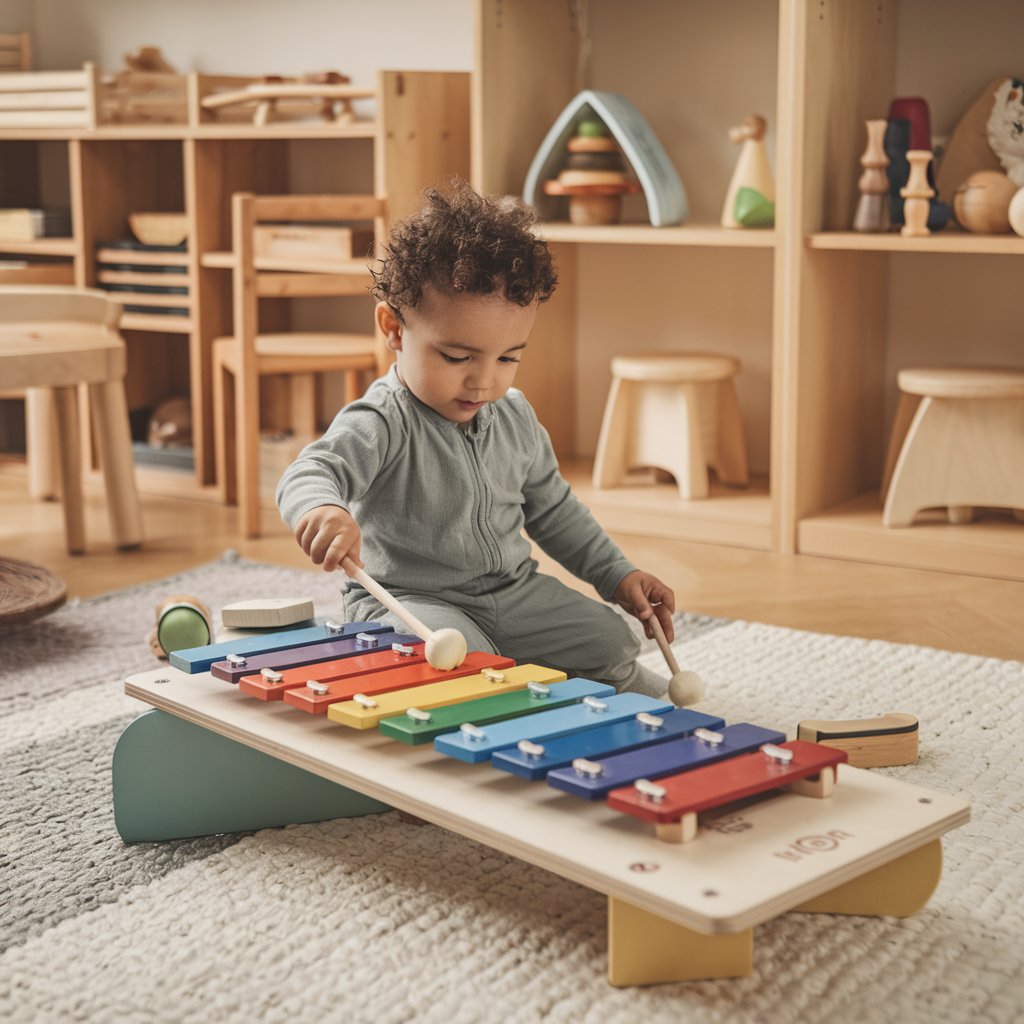Educational Wooden toys have been a trusted choice for parents and educators for generations. Besides being durable and aesthetically pleasing, many wooden toys are designed to help children develop essential skills like logical thinking and math. These toys offer a hands-on, engaging approach to learning, allowing children to interact with numbers, shapes, and quantities in a fun and stimulating way.
In this article, we’ll explore how educational wooden toys can be powerful tools in developing math skills and how they can be integrated into children’s daily activities.

1. Why Choose Wooden Toys for Math Development?
Wooden toys stand out because they provide a rich sensory experience. Unlike digital apps or electronic games, they encourage children to touch, stack, count, and organize, promoting physical interaction that is crucial for cognitive development.
Additionally, these toys are typically more straightforward and intuitive, allowing children to focus on the math concept itself without distractions. This helps create a solid foundation for learning numbers and math concepts naturally and enjoyably.
2. Types of Wooden Toys That Develop Math Skills
There are many types of educational wooden toys that can help children develop various math skills. Here are some of the most popular:
2.1. Abacus The abacus is one of the oldest wooden toys and is still widely used to teach math today. It helps children learn counting, addition, subtraction, and even introduces multiplication.
Benefits of the abacus:
- Promotes visual understanding of quantities and math operations.
- Helps develop logical and sequential thinking.
- Makes learning basic math operations practical and tangible.
2.2. Counting Blocks Wooden blocks with numbers or different colors are excellent for teaching addition, subtraction, and fractions. Children can stack or organize the blocks to understand quantities and operations.
Benefits of counting blocks:
- Teaches the relationship between numbers and quantities.
- Helps introduce concepts of fractions and division.
- Offers a visual way to practice basic operations.
2.3. Number Puzzles Wooden puzzles with numbers, shapes, or sequences are another effective tool for developing math skills. They require children to match numbers to quantities or complete number sequences, reinforcing logical thinking.
Benefits of number puzzles:
- Develops pattern and number recognition.
- Stimulates critical thinking and problem-solving.
- Provides a playful way to practice math concepts.
2.4. Weight and Measure Games Wooden toys that involve weights and measures, like balance scales or measuring sets, help children understand proportions and balance. They also teach units of measurement and offer a practical introduction to geometry.
Benefits of weight and measure games:
- Introduces concepts of proportion and balance.
- Teaches about weight and volume measurements.
- Encourages problem-solving skills.
3. How to Integrate Educational Wooden Toys into Daily Life
Incorporating educational wooden toys into children’s routines can be an easy way to reinforce math concepts. Here are some tips to make the most of these toys:
- Counting Routine: Use counting blocks or an abacus during daily activities, like counting toys at the end of the day or counting steps while walking.
- Family Games: Turn math practice into family games, using number puzzles or measurement challenges.
- Outdoor Activities: Take wooden toys outside and challenge children to stack blocks or solve puzzles outdoors, adding a physical aspect to learning.
These small interactions can help children practice math skills without it feeling like schoolwork, making learning natural and fun.
4. Long-Term Benefits of Educational Wooden Toys
The benefits of educational wooden toys go beyond immediate learning. Over time, they help develop a deeper understanding of math concepts and build a strong foundation for future learning.
Long-term impacts:
- Logical thinking: Toys like the abacus or number puzzles help children develop a logical way of thinking, which is essential for problem-solving in various areas of life.
- Math confidence: Children who start playing with numbers early on tend to feel more comfortable and confident with more complex math concepts in school.
- Patience and persistence: Solving puzzles or practicing math operations with blocks requires concentration and patience, essential skills for both academic and personal growth.
Conclusion
Educational wooden toys are valuable tools for developing math skills in children. From the abacus to counting blocks, these toys offer an interactive and fun way to learn math in a hands-on manner. Additionally, they are durable, eco-friendly, and provide a learning experience that goes beyond digital formats, allowing children to explore concepts in a tactile and visual way.
Incorporating these toys into children’s daily routines can help them build a solid foundation in math while having fun and gaining confidence in their abilities. If you’re looking for an educational and enjoyable way to teach math, educational wooden toys are undoubtedly an excellent choice!
